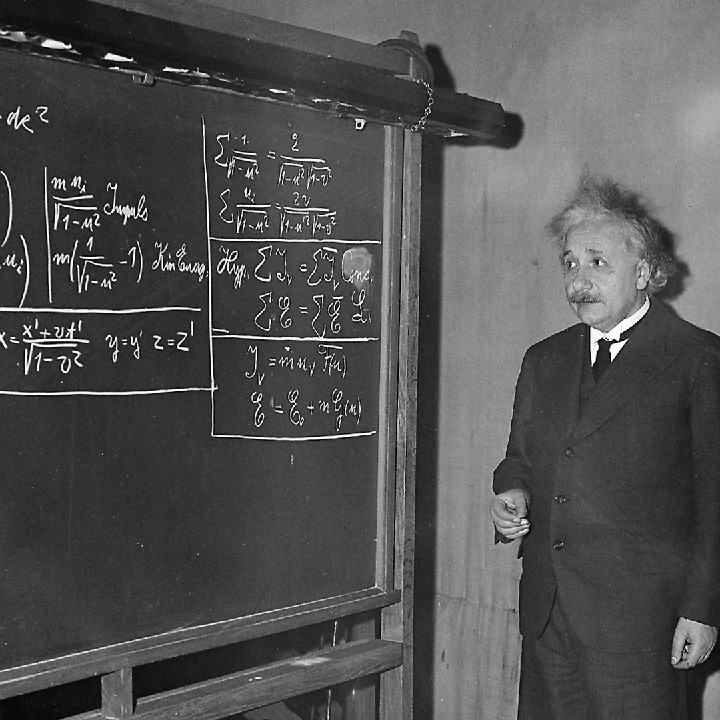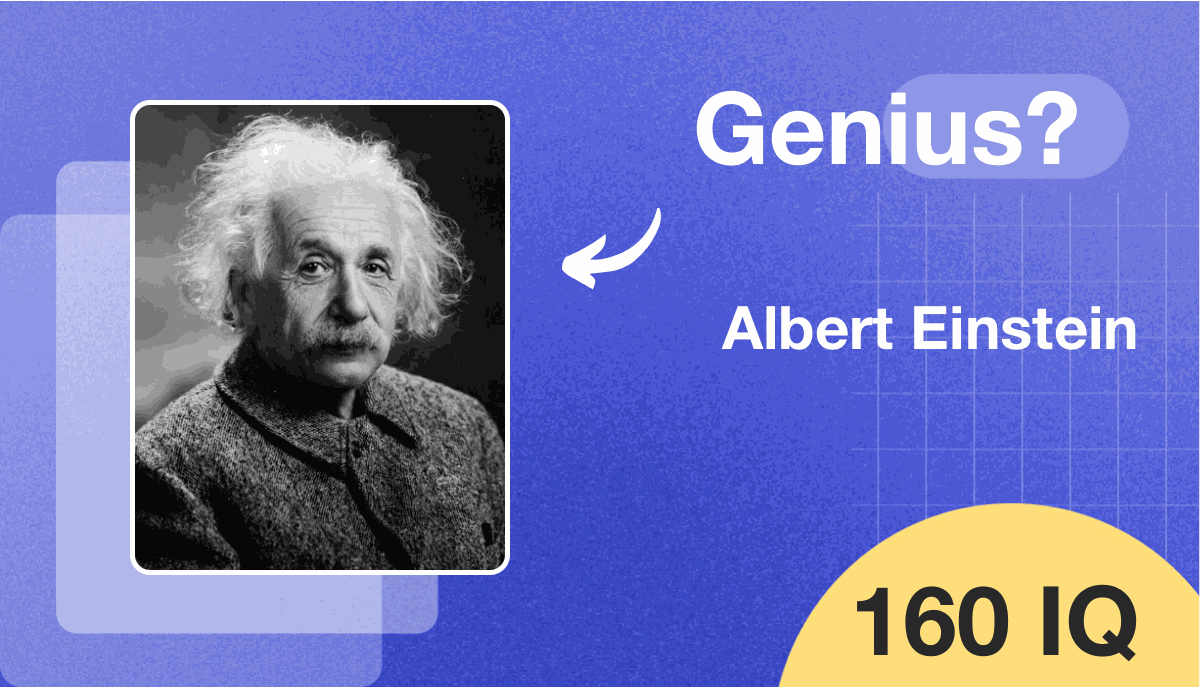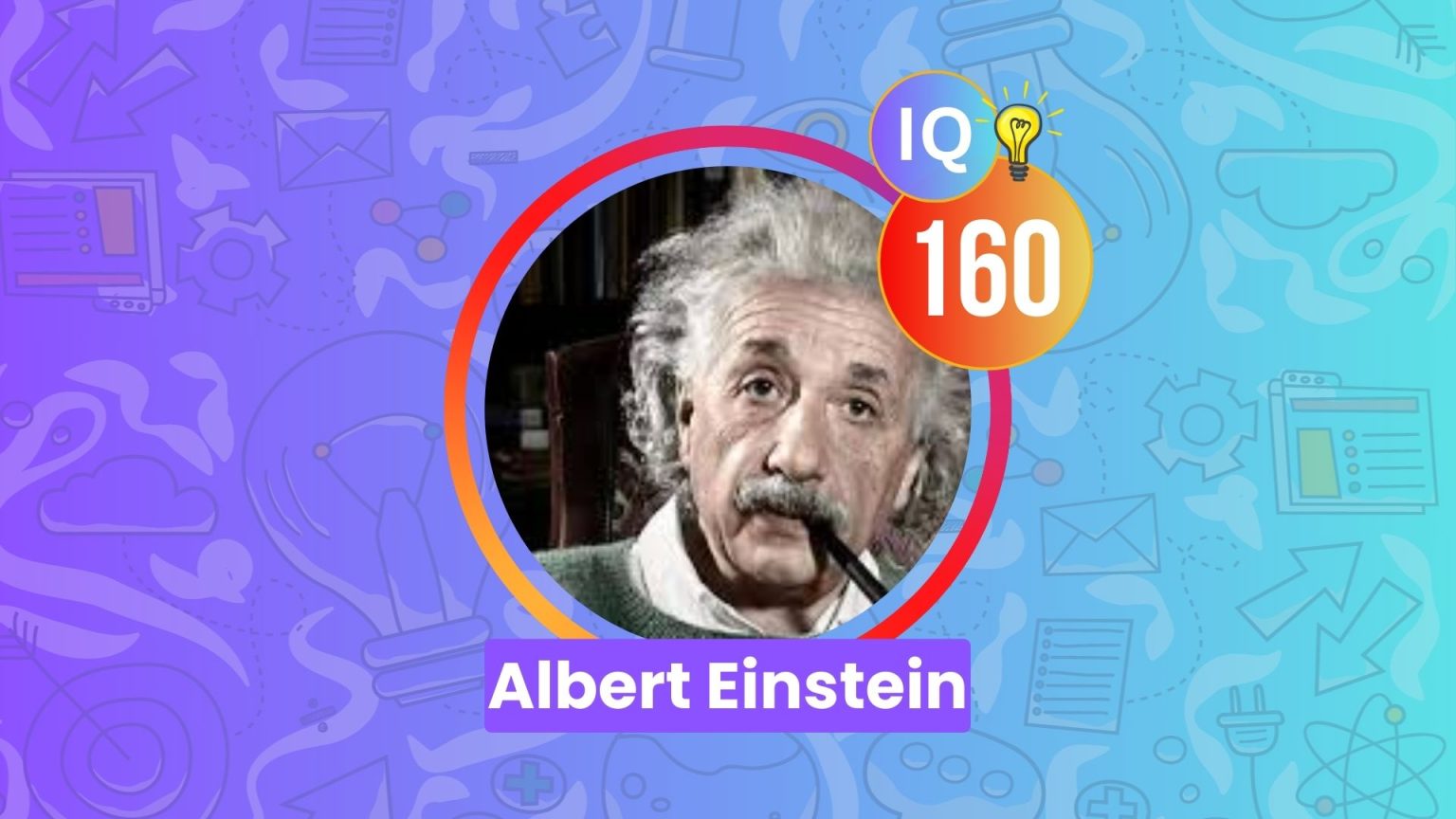What Was Albert Einstein's IQ? Exploring The Genius
What does it truly mean to possess an IQ that could be considered in the "genius" range? The quest to understand Albert Einstein's intellectual capacity is a fascinating journey into the mind of a scientific titan, a mind that redefined our understanding of the cosmos.
On March 14, 1879, in Ulm, Germany, a man was born who would forever change the landscape of scientific thought. This was the birthplace of Albert Einstein, a name now synonymous with brilliance and the relentless pursuit of knowledge. His theories, most notably the theory of relativity, didn't just reshape physics; they reshaped our fundamental understanding of space, time, gravity, and the universe itself.
| Attribute | Details |
|---|---|
| Full Name | Albert Einstein |
| Born | March 14, 1879, Ulm, Germany |
| Died | April 18, 1955, Princeton, New Jersey, USA |
| Nationality | German (later Swiss and American) |
| Fields of Study | Theoretical Physics |
| Notable Achievements | Theory of Relativity (Special and General), Photoelectric Effect, Brownian Motion |
| Awards | Nobel Prize in Physics (1921) |
| Estimated IQ | Between 160 and 190 (based on expert analysis) |
| Significant Contributions | Developed the theory of relativity and contributed significantly to the development of quantum mechanics. His work on the photoelectric effect revolutionized physics and earned him the Nobel Prize. |
| Legacy | Considered one of the most influential scientists of the 20th century. His theories have profoundly impacted our understanding of the universe and are still studied and applied today. |
| Reference | Nobel Prize Official Website |
The question of Einstein's IQ is a complex one. While IQ tests were not widely used during his time, the scientific community and experts have attempted to estimate his intellectual capacity by analyzing his achievements, publications, and thought processes. Based on these analyses, his estimated IQ score falls within the range of 160 to 180, placing him firmly in the "genius" category. It's important to understand that IQ represents overall cognitive abilities compared to age peers, with an average score of 100.
- Raymond Taylor Net Worth 2025 Unveiling His 63m Empire
- Luisa Zissmans Net Worth Earnings A Deep Dive In 2024
Einstein's impact extended far beyond the realm of physics. He was a vocal advocate for peace, social justice, and human rights. His writings and speeches addressed topics ranging from pacifism to Zionism, demonstrating a profound concern for the well-being of humanity. His legacy serves as a reminder of the power of curiosity, creativity, and critical thinking.
His papers on general relativity, published at the start of the 20th century, sent ripples of shock and awe through the scientific establishment, and his cosmological findings continue to captivate physicists today. His formulation of the theory of relativity, which encompasses both special and general relativity, revolutionized our understanding of gravity, space, and time. The implications of his work have profoundly shaped our comprehension of the universe.
It's worth noting that Einstein's brilliance wasn't immediately apparent. As a child, he was a late talker, and his teachers initially perceived him as slow. Yet, by the time he was a teenager, he was already grappling with complex scientific concepts. One of his thought experiments during his teenage years significantly helped scientists later.
Einstein's contribution to quantum theory, a fundamental aspect of modern physics, is undeniable. His work on the photoelectric effect, for which he received the Nobel Prize in 1921, demonstrated the particle nature of light, a groundbreaking concept that laid the foundation for quantum mechanics. The importance of his work is still studied and discussed among the most eminent scientists today.
While an exact IQ score might be difficult to ascertain, his contributions to science and humanity are undeniable. He is often considered the father of modern physics, and his ideas have shaped our understanding of the cosmos in ways that are hard to overstate. His work fundamentally changed the trajectory of scientific and physical understanding, offering a new perspective on intelligence.
Albert Einstein's legacy is a testament to the extraordinary power of the human mind. His intellectual perseverance, coupled with his creativity and unyielding curiosity, has left an indelible mark on the world. In 1999, Time magazine named him "Person of the Century." His name is synonymous with genius, and his influence continues to resonate across generations.
The intellectual feats of the 20th century were built on the foundation of Einstein's work. His discoveries and theories have provided the building blocks for so much of modern science and technology. Einstein's ability to discover previously unimagined secrets of the universe was born from a mind that was constantly questioning and exploring.
It's also interesting to note that Einstein wasn't the only brilliant mind who embraced a certain degree of "unkempt" chaos. Mark Twain and Steve Jobs, both known for their groundbreaking contributions, also worked in environments that could be described as "tumultuous". The environment Einstein created for his work did not hinder his discoveries.
French clinician Alfred Binet is credited with contriving the primary subjective tests intended to quantify the variety of human insight. His work laid the groundwork for the concept of IQ as we understand it today. However, assessing the full measure of a mind like Einsteins requires far more than a single number. It demands a profound appreciation of his theories, his thought processes, and his lasting impact on our world.
The family moved to Munich in 1880, where Einsteins father founded Elektrotechnische Fabrik J. Einstein & Cie, a company that manufactured electrical equipment based on direct current. It's clear that Einstein's brilliance became evident at an early age, despite the fact that he did not speak until he was three years old. His precociousness and persistent questioning of the world around him were the hallmarks of a mind destined for greatness.
From Albert Einstein's theory of relativity to Marie Curie's pioneering work on radioactivity, these individuals with exceptionally high IQs have revolutionized their respective fields. They pushed the boundaries of human knowledge, leaving a lasting impact on science and society. Einstein is considered the greatest scientist of all time, and his intellectual achievements speak for themselves.
Decades after his death, Albert Einstein's legacy continues to inspire. His contributions to our understanding of the universe have shaped modern physics and paved the way for countless discoveries. The story of Albert Einstein is a potent reminder of the extraordinary power of human curiosity and the enduring legacy of intellectual achievement.
While some experts are hesitant to reduce Einsteins accomplishments to a single IQ score, estimating his intellectual capabilities allows us to contextualize his genius. It allows us to comprehend the sheer scope of his achievements and their impact on our world. It can also serve to inspire and encourage us to strive for excellence in our own lives.
A study of 14 newly discovered photographs of Einstein's brain, preserved for study after his death, concludes that the brain was indeed highly unusual in many ways. Yet researchers are still working to understand exactly how the brains extra folds and convolutions translated into Einsteins amazing abilities. The very architecture of his mind may have contributed to his genius.
Another brilliant mind whose work transformed our knowledge of the universe was Nicolaus Copernicus. This brilliant astronomer's estimated IQ ranged between approximately 160 and 190. The pursuit of scientific advancement and the exploration of the universe are driven by curiosity, creativity, and the determination to understand the mysteries of existence.
Einstein's legacy is a testament to the transformative power of human thought. His extraordinary accomplishments and abilities suggest that his IQ would likely be around 160, significantly higher than the average. His influence extends far beyond the realm of physics; it touches on the very essence of human curiosity and the unending quest for knowledge.
- Lady Colin Campbell Net Worth Facts Financial Insights
- Rick Wakeman Net Worth 2024 Yes Legends Career Wealth

Einstein Iq

Understanding Einstein IQ What It Means and How to Apply It Dong Ciskin

Albert Einstein's IQ Score (Theoretical physicist)